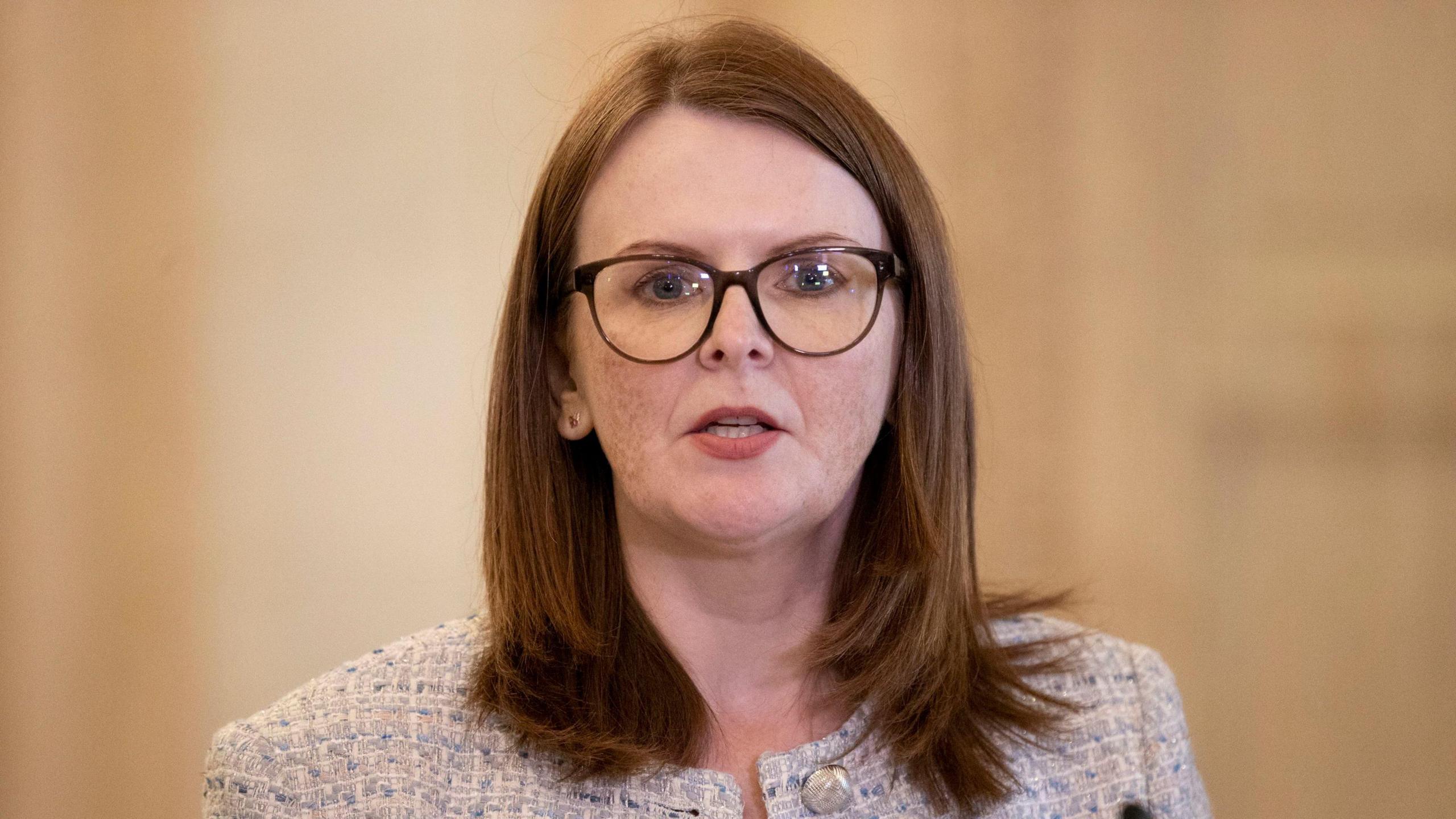NI's unemployment rate falls to record low

Typical monthly pay continued to increase, rising by 3.7% in June to £2,329
- Published
The unemployment rate in Northern Ireland reached a new record low of 2% in May, the latest official figures suggest.
The overall jobs market remains healthy with the number of people on company payrolls growing to 808,000 in June.
That was a 2.4% increase compared to the same month in 2023.
Typical monthly pay also continued to increase, rising by a monthly rate of 3.7% in June to £2,329.
That was an increase of more than 11% compared to June last year while the average annual increase for the UK as a whole was less than 4%.
The statistics agency Nisra does not say why Northern Ireland saw such a big increase in June though it could be related to public sector pay settlements.
The restored Stormont Executive received almost £600m from the UK government to meet the cost of backdated pay awards.
Can Stormont afford new pay deals?
Executive ministers have raised concerns about funding for future pay awards in a meeting with the new Chancellor.
The First Minister, deputy First Minister and Finance Minister met Rachel Reeves in London.

Finance Minister Caoimhe Archibald raised concerns with the new Chancellor Rachel Reeves
The Finance Minister Caoimhe Archibald said: "I did express concerns about our overall finances and the need for additional funding for public sector pay awards, including to meet pay review body recommendations."
The extra money the Executive received was used to settle outstanding pay disputes, however, a new round of pay negotiations will begin shortly.
The NI Fiscal Council, an independent budget watchdog, said Stormont’s Department of Finance has told departments to plan on the basis of 3% pay growth this year and to find that money from their budget allocations.
The NIFC said this means all departments started the fiscal year facing "an in-built wage-cost pressure" and warned this could result in further strike action.
It is possible that Stormont could receive additional funding later this year when the Chancellor delivers her first budget, which is expected to be in October.